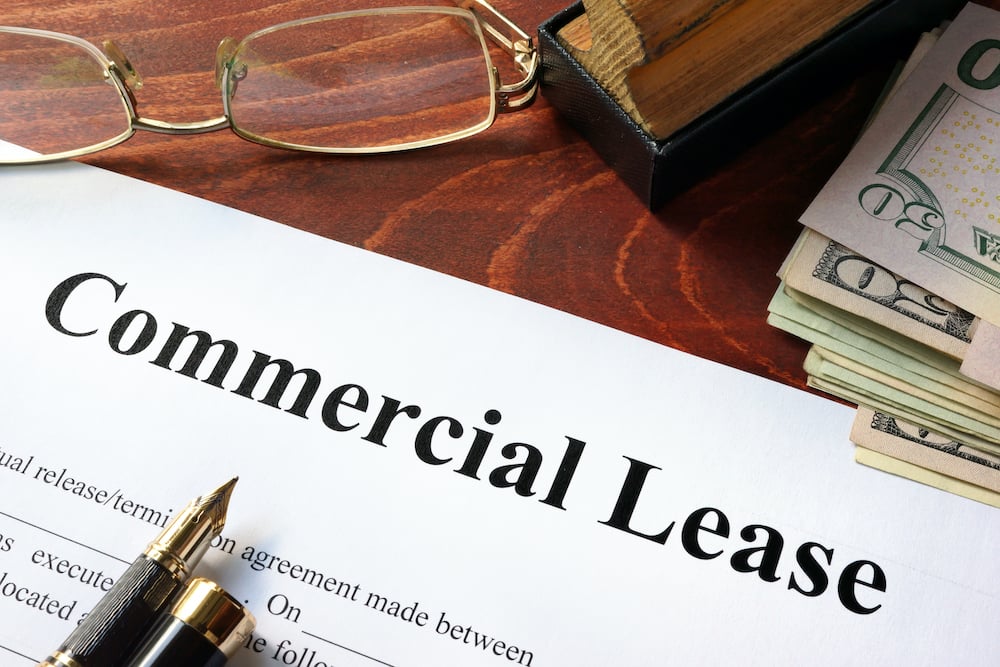How Businesses are Using Lease-to-Own Options to Solve Real Estate Strategy Challenges
As a small business, decisions regarding your real estate impact other areas of company strategy. These decisions hinge on opportunity cost – the loss of potential gain, by making one decision over another.
Maybe you leased some space that didn't work for your business because you felt like you couldn't afford an upgrade. The forgone gain might be the equity you would have built in the property if you owned the space. Or it could be the negative impact on top-line growth, either through operational inefficiencies resulting from your real estate, or space challenges hindering scaling your business.
And the real estate industry doesn’t offer a solid answer because it often lacks creativity – if a problem doesn’t fit into the prescribed box of predetermined solutions, then the answer must be it can’t happen. That creates a problem as businesses navigate these strategy challenges blindly, unaware of the potential opportunity costs, with no real available resources to help improve their positioning.
But all this doesn't mean there aren't solutions. In fact, a lesser-known and often belittled tactic, a lease-to-own contract, is an arrangement that offers an alternative solution to the problems many small businesses face.
It’s certainly not a magic bullet and poses its own set of challenges, but it’s worth investigating and weighing as part of your overall business strategy.
Before diving into the ins and outs of a rent-to-own arrangement, let’s first define the term.
What's Lease-to-Own?
A lease-to-own contract is a type of commercial real estate transaction where a tenant commits to renting property for a predetermined amount of time, with the option to purchase it at the end of the lease.
There are two types of lease-to-own contracts that determine the flexibility of the agreement and each parties' responsibilities:
Lease Option
A lease option is a contract that allows a tenant to purchase the property but does not oblige them to do so. In other words, the tenant has the option to buy the property.
Lease Purchase
A lease purchase contract stipulates that a lessee is obligated to purchase the property at a future date. The purchase price is negotiated as part of the contract and is either locked in at signing or determined at lease expiration, based on current market value.
Understanding the contractual differences between lease options and lease purchase contracts is vital to crafting the right long-term real estate strategy.
Lease-to-Own as an Answer to Real Estate Strategy Challenges
History suggests that most small businesses wrestle with several real estate problems that impact their overall corporate strategy – and most don’t even know it.
Space must enable and support operations while also facilitating a business's capital and liquidity needs. And frequently, the two schools of business strategy work against each other – larger, more efficient, and higher-end space costs more money. And that's a problem, especially when a company is growing and most excess resources are reinvested into operations.
Businesses usually follow a natural real estate progression – they bootstrap and lease a while during the start-up phase, grow to a certain threshold and continue to scale operations, so they decide to buy a building. In some situations, that’s great, but it requires obtaining a mortgage. And to qualify for a mortgage, you need to have the requisite credit score, adequate liquidity for a down payment, and cash flow to support a monthly mortgage payment. For companies rapidly growing, that’s not always an option.
A build-to-suit can solve this problem – an outside investor or developer can build a custom property for an end-user, eliminating the capital need for a down payment. But development often takes a while, and many build-to-suit lease agreements span 10-20 years in term.
If you already own your property, a sale-leaseback arrangement might be a solution to help with liquidity problems as well – reallocating capital tied up in the equity of a property and reinvesting it back into operations.
A lease-to-own contract poses a third option – a solution that can offer leasing flexibility, easing the drain on a business's capital resources while also affording the opportunity to purchase the property at a predetermined future date and price.
As a small business, if you’re an aspiring real estate owner but don’t have the financial wherewithal to purchase a property, a rent-to-own contract offers a way to lock the property that fits your needs.
A lease-to-own arrangement may also be a good tactic if you’re a company experiencing rapid growth but don't have a solid understanding of your business's long-term growth trajectory. In that case, a lease option contract would allow the flexibility to forgo purchasing the building after the lease if your space needs have changed.
Negotiating a Lease-to-own Contract
Although rent-to-own arrangements follow a typical deal structure, the terms of the deal substantially influence the profitability for both a small business occupant and the property owner.
The first critical negotiable point is the option fee. A non-refundable option fee is typically paid upfront by the lessee (eventual buyer) to the owner for the option to buy the property at a future date. The fee is negotiable but traditionally ranges from 1% to 10% of the future purchase price.
The lease term is another critical point that needs to be addressed. A longer-term lease gives an owner greater predictability of incoming cash flow and reduces their exposure to short-term market fluctuations. Conversely, the longer time horizon leads to greater unpredictability of the future value of the real estate – which can lock the lessee or owner into an unfavorable purchase price.
Property owners will often charge higher than market rental rates on lease option and lease purchase contracts to mitigate the risk of selling the property at a lower price in the future.
Depending on the terms of the contract and the type of commercial real estate lease agreement, the tenant and owner will have varying levels of responsibilities. Therefore, any maintenance, repair, and TICAM expense requirements must be clearly delineated in the contract to avoid misunderstandings or hidden costs.
Rent-to-Own in Practice
In many lease-to-own transactions, a portion of each rental payment is applied to the principal. Since you'll be paying rent throughout the lease term at a higher than market rate, this helps incentivize the tenant to buy the building at the end of the lease. For example, let's say you pay $5,000 in rent each month for 5 years. If you pay a 10% lease premium applied to the principal at the end of the term, you will have accumulated $30,000 in rent credit towards the property.
When the contract ends, there are several things to consider:
- If you decide to close on the property, you'd need to obtain a mortgage or some other type of financing to pay the seller.
- If you've structured a lease option contract but decide you don't want to purchase the building, you'll most likely lose any option fees and rent premiums paid to the owner.
- If you've structured a lease-purchase contract, you'll be legally obligated to buy the property. This poses a problem if you haven't already arranged long-term financing or no longer want to buy the property.
There are also a variety of tax implications when engaging in a lease agreement with an option to purchase, including:
- the rental payments are considered part of the sales price - this results in their characterization as capital gains vs. ordinary income
- the tenant is allowed to deduct depreciation in some circumstances
- the tenant is not allowed to deduct rental payments
Ultimately, these tax consequences will impact the profitability of a project, for both the tenant and owner. A tax attorney or accountant can help you navigate the nuances of the tax code and its impact.
Maybe a lease-to-own transaction can help answer your strategy problems. Or perhaps a build-to-suit better fits your needs.
At Marsh & Partners, we live and breathe real estate strategy and no one-size-fits-all solution ever produces the best results. So we've developed a real estate strategy assessment to help answer some of the burning questions that keep business owners up at night.



